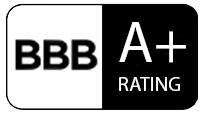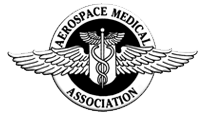The FAA is on record as being willing to certify some, but not all, pilots who take certain antidepressants. The list of favorites include single-use (only one drug) Anti-Depressants such as: Celexa (Citalopram Hydrobromide), Lexapro (Escitalopram Oxalate), Prozac (Fluoxetine Hydrochloride), Zoloft (Sertraline Hydrochloride). Wellbutrin XL (Extended Release Bupropion) and Sustained Release (SR) are acceptable on a case by case basis while Immediate Release (IR) is not. – In addition, Khedezla & Pristiq (Desvenlafaxine), Cymbalta & Yentreve (Duloxetine), Vensir, Vencarm, Venlalix, Effexor & Venlablue (Venlafaxine) are also approved by the FAA for mild to moderate depression on a case by case basis. Approval for any psychiatric drug is very strict and does not permit applicants to be approved by an AME or even the FAA office in Oklahoma City. These cases are decided by the FAA office in Washington, D.C. and many cases are not approved for a variety of reasons. Contact us at 405-787-0303 to discuss eligibility criteria in detail.
All other SSRI’s or other psychiatric medications, including but not limited to: Xanax (Alprazolam), Klonopin (Clonazepam), Ativan (Lorazepam), Luvox (Fluvoxamine), Nortiriptyline (Pamelor), Norpramin (Desipramine), Paxil (Paroxetine), Valium, Diastat, Diastat & AcuDial (Diazepam), Viibryd (Vilazodone), Prudoxin (Doxepin), Silenor, Zonalon and Prudoxin are not acceptable to the FAA.
While these medications may be approved, this does not always occur. FAA acceptance is not allowed if there is a significant medical diagnosis which requires medication to assure safe function and behavior. These cases are considered by the FAA on a case by case basis only. Applicants may be considered after extensive testing and evidence of successful use for a minimum of 6 continuous months without adverse effects. Again, these particular psychiatric medications, which many consider to be “approved” by the FAA for psychiatric conditions*, are only approved on a case by case basis. The FAA has approved relatively few airmen under the FAA’s SSRI / Antidepressant protocol. Certain mental conditions are absolutely disqualifying. In order to have the best chance at FAA acceptance a tailored medical petition for consideration should contain eloquently detailed rationale. Most psychotropic drugs are not approved under any circumstances.
This includes but is not limited to:
- Abilify (Aripiprazole)
- Amoxapine
- Anafranil (Clomipramine Hydrochloride)
- Elavil (Amitriptyline Hydrochloride)
- Luvox (Fluvoxamine Maleate)
- Maprotiline Hydrochloride
- Monoamine Oxidase Inhibitors
- Nardil (Phenelzine Sulfate)
- Norpramin (Desipramine Hydrochloride)
- Pamelor (Nortriptyline Hydrochloride)
- Parnate (Tranylcypromine Sulfate)
- Paxil (Paroxetine Hydrochloride)
- Remeron (Mirtazapine)
- Serzone (Nefazodone Hydrochloride)
- Sinequan (Doxepin Hydrochloride)
- Surmontil (Trimipramine Maleate)
- Tofranil (Imipramine Hydrochloride, Imipramine Pamoate)
- Trazodone Hydrochloride
- Tricyclic Antidepressants
- Vivactil (Protriptyline Hydrochloride)
If the treating physician establishes that there is no longer a need for psychotropic medication, this opens another option which typically provides greater assurance of favorable FAA consideration. In this situation, the medication must be discontinued and the condition and circumstances should be evaluated after being off-medication for at least 60 but in most cases 90 days. Should your physician believe you are an ideal candidate, the herbal preparations such as Saint Johns Wort or Deplin may also be an option.
After discontinuing the medication, a detailed psychiatric evaluation should be obtained. The evaluation must be conducted in a set format and in compliance with FAA protocol. There are several parameters involved with the evaluation. Resolved issues and stability without medication are typically the strongest factors for FAA approval.
We can help
We have helped thousands of pilots with this process. We work directly with your physicians and the FAA to assure compliance with FAA protocols and to resolve complex aeromedical certification issues quickly.
Contact us at 405-787-0303 or via E-Mail to confidentially discuss the details of your case and establish your eligibility for FAA medical certification. There is no charge for an initial consultation.



